Too Much on Salaries? Economist Warns Belize’s Budget Is Off Balance
We turn our attention to the nation’s finances, and the numbers are raising eyebrows. The proposed national budget for this fiscal year has raised concern among economists and politicians alike. At a whopping 1.78 billion dollars, the total expenditure is nearly four hundred million dollars more than what the government expects to collect. That’s a significant deficit—and one that’s not unfamiliar. Belize has historically operated with a budget shortfall, but this year’s gap is drawing sharper scrutiny. Economist Doctor Phillip Castillo says the problem isn’t just the size of the budget, it’s where the money is going. He points to high spending on salaries and non-contributory pensions as key drivers of the deficit. According to Doctor Castillo, trimming these costs could help close the gap. And it’s not just economists sounding the alarm. Leader of the Opposition, Tracy Taegar-Panton, voiced her own concerns during an appearance on “Open Your Eyes” on Tuesday. After reviewing the figures, she questioned the sustainability of such a large spending plan. So, what does this mean for you, the taxpayer? And how can the government balance the books without cutting essential services? News Five’s Marion Ali breaks down the numbers and explores the implications in the following report.
 Marion Ali, Reporting
Marion Ali, Reporting
Belize is planning to spend a whopping $1.78 billion this fiscal year, but nearly half of that will go toward government salaries and pensions. And that, says one local economist, is simply too much. Dr. Phillip Castillo, an economist and lecturer at the University of Belize, says the country can’t afford to keep pouring such a large chunk of its budget into paying public workers and retirees. In an interview, Dr. Castillo pointed out a troubling issue: some people are still getting paid even though they’re not formally employed. He believes the government needs to take a hard look at its payroll and cut off payments to those who shouldn’t be there.
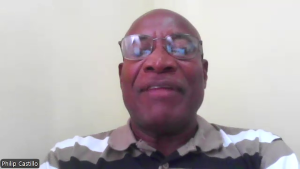
Phillip Castillo
Dr. Phillip Castillo, Economist
“What jumps out at me is the inordinate expenditures on wages and salaries and pensions, Now the way to handle that, meaning that – the unions – they’ve accused basically government of having a host of most workers. That’s a low hanging fruit you could easily ascertain. I’m certain that the government could initiate an investigation to ascertain if there are ghost workers on its payroll. If there are, you certainly want to move them. And you certainly want to prevent them from – to ascertain the process by which ghost workers came on your payroll and then you want to adjust that, legally or otherwise.”
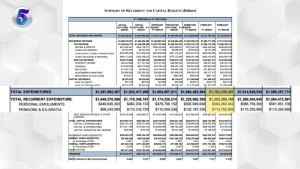 According to Castillo, removing so-called “ghost workers”—people who are still being paid despite not actively working—could significantly reduce the country’s wage bill. And the numbers are no small matter. When he presented the national budget, Prime Minister John Briceño revealed that forty cents of every dollar the government spends goes directly to salaries and pensions. Last year alone, that added up to over half a billion dollars. Castillo says that kind of spending isn’t sustainable.
According to Castillo, removing so-called “ghost workers”—people who are still being paid despite not actively working—could significantly reduce the country’s wage bill. And the numbers are no small matter. When he presented the national budget, Prime Minister John Briceño revealed that forty cents of every dollar the government spends goes directly to salaries and pensions. Last year alone, that added up to over half a billion dollars. Castillo says that kind of spending isn’t sustainable.
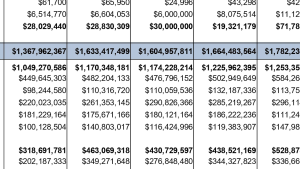 Prime Minister John Briceño
Prime Minister John Briceño
“Government spending on salaries for its estimated fifteen thousand workforce, all teachers and public officers was five hundred and three million dollars with an additional hundred and thirty million dollars spent on pensions and ex-gratia payments. Put it differently, fifty-two cents of government spending goes to salaries and pensions. Forty-three cents on every tax dollar was spent on salaries and pensions.”
According to Castillo, the current pension system is putting heavy strain on the national budget. He says that if the government reforms how pensions are paid out, it could drastically reduce those costs and help chip away at the country’s four hundred-million-dollar deficit.
 Dr. Phillip Castillo
Dr. Phillip Castillo
“I have always been an advocate for contributory pensions. Belize’s pension scheme is non-contributory, and that makes it unsustainable. You really want to make your pensions scheme contributory, and then not only does that make it sustainable, but by paying contributor pensions, it means that public officers could then advocate for pensions to be tied to some kind of inflation or cost of living adjustments.”
Earlier this week, Opposition Leader Tracy Taegar-Panton shared that the figures presented in the budget are signs of challenges ahead. She raised a red flag about how the national budget is being spent, pointing out that once the government covers its massive expenses and debt payments, there’s only a small slice of the pie left for the things that really matter, like education, healthcare, and infrastructure.

Tracy Taegar-Panton
Tracy Taegar-Panton, Leader of the Opposition
“Forty percent is for recurrent expenditure; thirty percent – infrastructure development; eight percent – debt payments; so that’s eighty percent of the budget is gone. There’s twenty percent that should now be divided into areas that concern the Belizean people: education, health, social safety net programs for the most vulnerable in our communities, housing. These things are big things for people who are struggling every single day to put food on the table.”
While the Prime Minister touted an eight-point-two percent growth in GDP, not everyone is buying it. Panton pushed back, saying that kind of economic growth just isn’t visible to the average Belizean struggling with day-to-day costs.
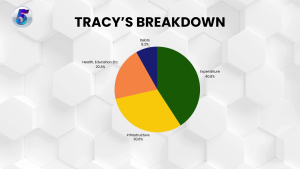 Tracy Taegar-Panton
Tracy Taegar-Panton
“Where is it? And who has the benefit of that eight-point two percent growth in the G.D.P?”
Paul Lopez
“It’s in the tourism sector – jobs.”
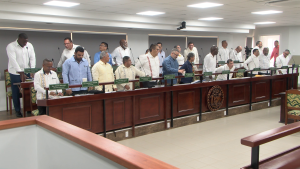 Tracy Taegar-Panton
Tracy Taegar-Panton
“So what happens to the productive sector? What are we going to address the energy crisis that is imminent in this country? What are we doing to prepare for the trade wars and the impact that will have on small economies like Belize? What are we doing to expand our exports to CARICOM and to Mexico and to Taiwan? Where are the New Growth industries and what are we doing and what do we have planned to support these New Growth industries to take root, so we can diversify our economy?”
As far as loans go, Dr Castillo said there’s nothing wrong with borrowing, if it their interest rates are affordable.
Dr. Phillip Castillo
“There’s absolutely nothing wrong with borrowing money if you’re borrowing from cheap sources. Then you’re using that money for productive purposes to build your – to enhance your productive capacity. It’s always a challenge if you’re borrowing for recurrent expenditures. I’m not certain if that is being done, but if you’re borrowing for capital expenditures for capital projects, and your sources of financing are fairly low, it’s low-cost financing. There’s absolutely nothing wrong with that.”
Castillo said he anticipates a fiery debate of the budget, and he will be able to weigh both sides of the debate. Marion Ali for News Five.





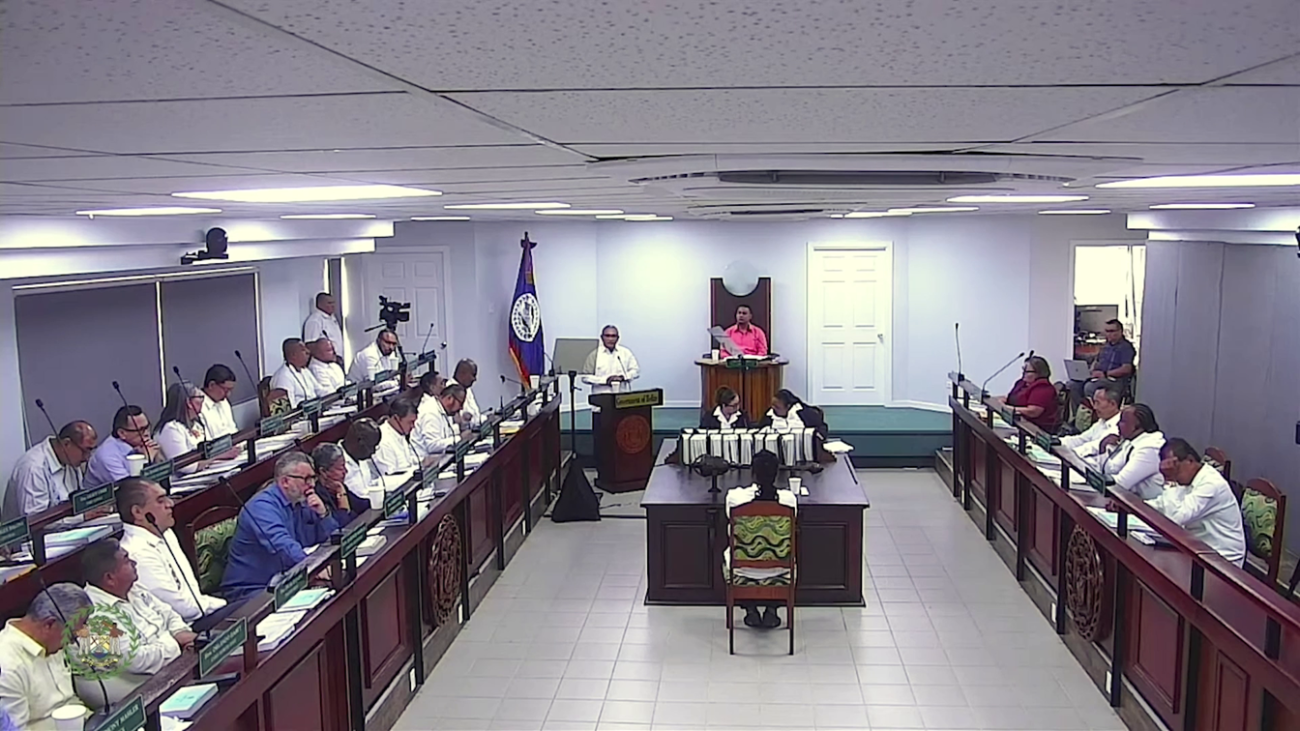

Facebook Comments